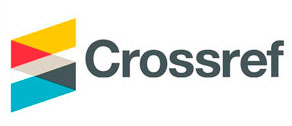Maxima discriptive metaphysics discourse: «Back to Plato!»
Abstract
The descriptive metaphysics of discourse combines the elements of descriptive and revisionist metaphysics in the interpretation of P. Sotoson. The main difference is that it reveals not the relation of language and reality, but the subject and reality. It accepts the position that the description, at the same time, is the manifestation of the subject of discourse. Their unity finds its embodiment in the concept, as the unity of the statement and action. According to pragmatism, the purpose of the concept is that it is the beginning of life experience with new values, forms "eternal truths"and its absolutism is an obstacle to success. In analytic philosophy, the concept refers not to experience, but to the image. The set of concepts forms a concept if they assume each other and form integrity. However, this requirement is not always performed. This is explained by the fact that the subject of discourse at the base of existence has ambivalent meanings of existence. Therefore, in order to succeed, the subject seeks to impose his teleology. In the context of the indicated problem, one should bear in mind the difference between the transcendental and the immanent theory of discourse. The disadvantage of transcendental pragmatics is that it does not take into account the originality of the subject of discourse. Accordingly, preference is given to the immanent interpretation of discourse, since it is based on the assumption of the subject originality of discourse. At the same time, the descriptive metaphysics of discourse does not refuse the basic transcendental propositions. In particular, the rules of absolute ethics, arising on its basis, presuppose positivity, which is necessary in order to show the uniqueness of the moral position of the subject in discourse. The main purpose is to restore full reflexion. It is precisely in this aspect that the philosophy of voluntarism and postmodernity acquire relevance. They show the peculiarity of an inferior discursive reflection and designate possible aspects of its correction..


